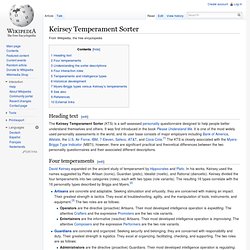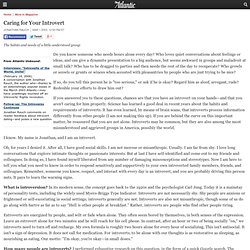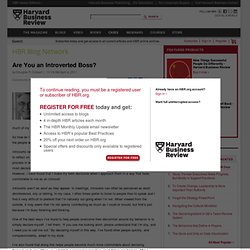

Emotability. Testy. 20561_ftp.pdf;jsessionid=389B4AA2D1D3F6A03D41A00A547B178D.f03t02?v=1&t=i6sa49af&s=12cfd209c2cbd4e98967883389a2738a9675f893&systemMessage=Wiley+Online+Library+will+be+disrupted+on+7th+March+from+10%3A00-13%3A00+GMT+%2806%3A00-09%3A00+EST%29+for+essential+m. Bodily maps of emotions. Baggage Check. It's a tale of two men: Alfred Paine began life in wealth and privilege.

His family wasn't warm or close, but his parents endowed him with a trust fund at birth and later, an Ivy League education. When he died, though, he counted no close friends. He left behind multiple unhappy marriages and adult children who rarely visited him. One daughter described him as having lived "an emotionally starved life. " Recommended Related to Men Our Cheatin’ Hearts Why can’t you just be faithful? Read the Our Cheatin’ Hearts article > > Paine's schoolmate, Godfrey Camille, also came from an upper-class, troubled home. Why did Camille grow into an emotionally healthy man, while Paine did not? Continue reading below... Characteristics of Emotionally Healthy Men Paine and Camille, whose real names were disguised, were among more than 200 Harvard undergraduate men whom researchers studied for physical and mental health from late adolescence into very old age.
Katherine Kam is a journalist in the San Francisco Bay Area who specializes in health reporting. It’s a tale of two men.

Alfred Paine began life in wealth and privilege. His family wasn’t warm or close, but his parents endowed him with a trust fund at birth and later, an Ivy League education. When he died, though, he counted no close friends. He left behind multiple unhappy marriages and adult children who rarely visited him. Character Strengths Development: VIA Institute on Character. Ed Diener, Subjective Well-Being. Laboratory for Affective Neuroscience, UW-Madison Psychology Dept. Footsteps on the road to a positive psychology. The genetics of stupidity. An implication of that phrase is that mutations in those genes were positively selected for at some stage in humanity’s descent from our common ancestor with apes, on the basis of conferring increased intelligence.

This seems a fairly reasonable leap to make – such genes must exist and, if variation in these genes in humanity’s evolution could affect intelligence, then maybe variation in those same genes can explain variation within the human species. The problem with that logic is that we are talking about two very different types of variation. On the one hand, mutations that arose during human evolution that conferred increased intelligence (through whatever mechanism) will have been positively selected for and fixed in the population.
How this happened is unknown of course, but one can imagine an iterative process, where initial small changes in, say, the timing of processes of brain development led to small increases in intelligence. Riverside - Woodcock-Johnson III. New Mentality. The Persecution Complex of the Modern Introvert. How our brains can control our emotions. The brain’s complicated wiring could help dictate whether we feel happy, angry or sad.

Could electrical charges be the answer to help treat mental disorders? (WARNING: Contains mild footage of animal experiments) We all know humans have a complex range of emotions – from anger to fear, aggression to happiness. For something so familiar to all of us, it’s amazing how vexing and difficult a problem it still is in brain science. David Anderson, professor of biology at California Institute for Technology, hopes this will change. It has long been thought that the chemicals our bodies create largely regulate the way we feel, but Anderson thinks it could also be down to the wiring within our brains.
It’s these and other insights in the field that are beginning to uncover how emotions are encoded in the brain. Additional footage: Shutterstock. Chakra Model. Personality Tests. Personality types. Introversion. Keirsey Temperament Sorter. Heading text[edit] The Keirsey Temperament Sorter (KTS) is a self-assessed personality questionnaire designed to help people better understand themselves and others.

It was first introduced in the book Please Understand Me. It is one of the most widely used personality assessments in the world, and its user base consists of major employers including Bank of America, Allstate, the U.S. Air Force, IBM, 7-Eleven, Safeco, AT&T, and Coca-Cola.[1] The KTS is closely associated with the Myers-Briggs Type Indicator (MBTI); however, there are significant practical and theoretical differences between the two personality questionnaires and their associated different descriptions.
Four temperaments[edit] David Keirsey expanded on the ancient study of temperament by Hippocrates and Plato. Artisans are concrete and adaptable. KTS II pdf LinkClick. Personality Test - Keirsey.com *** Keirsey Temperament Sorter II. The six biggest mistakes of managing an introvert. Caring for Your Introvert. The habits and needs of a little-understood group From Atlantic Unbound: Interviews: "Introverts of the World, Unite!

" (February 14, 2006) A conversation with Jonathan Rauch, the author who—thanks to an astonishingly popular essay in the March 2003 Atlantic—may have unwittingly touched off an Introverts' Rights revolution. Follow-up: The Introversy Continues Jonathan Rauch comments on reader feedback about introvert dating—and poses a new question Do you know someone who needs hours alone every day?
If so, do you tell this person he is "too serious," or ask if he is okay? If you answered yes to these questions, chances are that you have an introvert on your hands—and that you aren't caring for him properly. I know. Oh, for years I denied it. The Introvert's Corner. The Introvert-Friendly Office. Are You an Introverted Boss? - Douglas R. Conant. By Douglas R.

Conant | 10:19 AM April 4, 2011 Every time I’ve taken a Meyers-Briggs test, I score high on the introversion scale. As an introvert, I enjoy being by myself. I sometimes feel drained if I have to be in front of large groups of people I don’t know. Personalidad. New Mind Health.